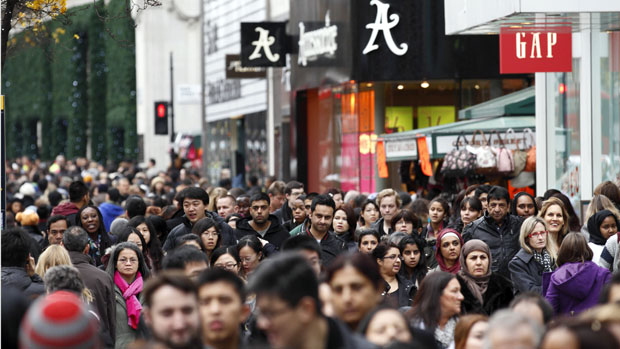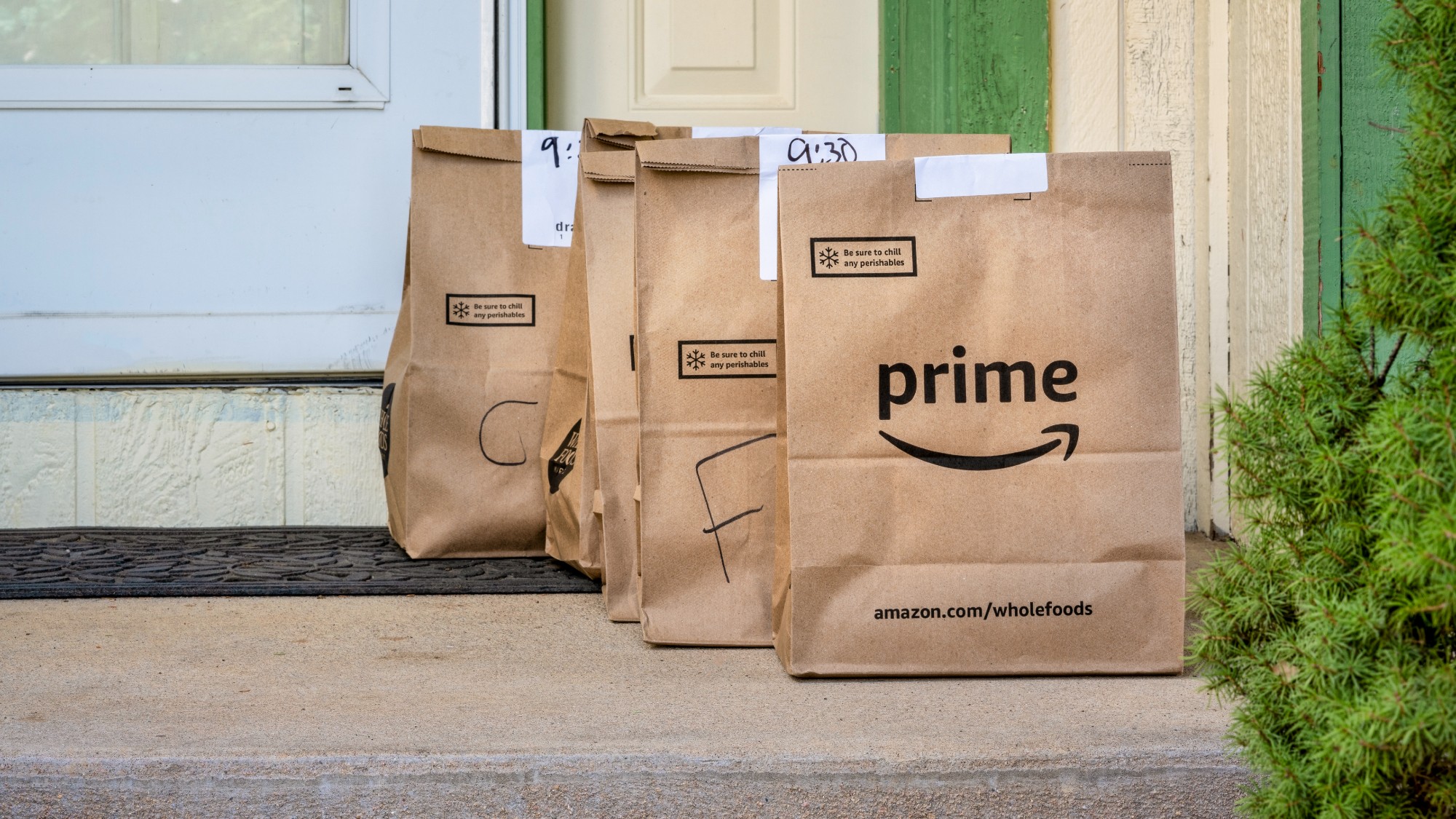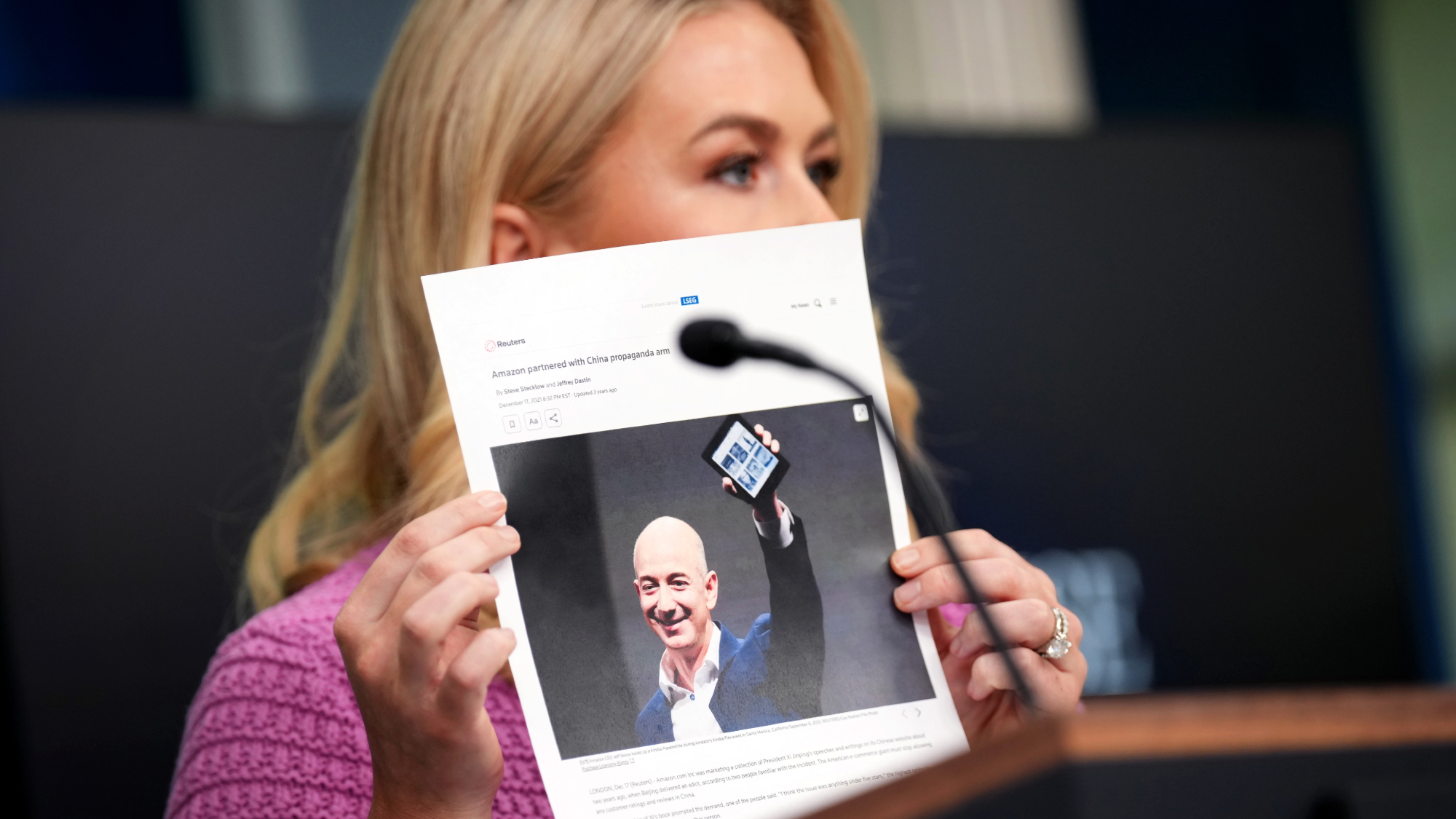Five tricks to get the best Black Friday deals
Beware of scams amid the bargains to be had in shops and online

A free daily email with the biggest news stories of the day – and the best features from TheWeek.com
You are now subscribed
Your newsletter sign-up was successful
Bagging a bargain often used to mean enduring jostling crowds, long lines and even the odd in-store punch-up.
Thankfully, the rise of online shopping and global shopping extravanganzas such as Black Friday means it is no longer necessary to sharpen your elbows to get the best deals.
With retailers lining up to offer great discounts during this Friday’s mammoth sales, here are five tips to get the most for your money:
The Week
Escape your echo chamber. Get the facts behind the news, plus analysis from multiple perspectives.

Sign up for The Week's Free Newsletters
From our morning news briefing to a weekly Good News Newsletter, get the best of The Week delivered directly to your inbox.
From our morning news briefing to a weekly Good News Newsletter, get the best of The Week delivered directly to your inbox.
Use price trackers
One way to establish whether you really are getting a bargain is to use a price tracker, says the BBC.
Price tracking firms such as Keepa, Wikibuy and CamelCamelCamel compare discount deals with data on how much the given product has sold for on the same site in past months, and how that stacks up against competing retailers.
The BBC also suggests using PriceSpy, which tracks prices across “hundreds of retailers including John Lewis and Argos”, and Idealo, which does the same “across 29,700 different shops in Europe”.
A free daily email with the biggest news stories of the day – and the best features from TheWeek.com
Set up Google Alerts
The sheer scale and volume of deals across multiple stores makes it hard to keep up over Black Friday.
But using the free Google Alerts service to track prices as they rise and fall can give you a huge advantage over your fellow shoppers.
TechRadar reports that Google Alerts will email you “when it finds new content on the internet that includes a term you’ve specified”, so that when the deals start landing you can “simply check your inbox to make sure you’re not missing out on any amazing offers”.
“In fact, it can even give you a competitive advantage on Black Friday, as you may find out about deals before the majority of shoppers discover them,” the tech news site adds.
Aim for shops where you can earn points
Many banks use a cashback system, rewarding credit and debit card users for shopping in partner stores.
MoneySavingExpert has created a comprehensive list of the best cards to use to collect rewards.
The best option for Amazon vouchers is the American Express Rewards credit card. Users who spend £1,000 in the first three months will receive 10,000 bonus points, which can be converted into £50 of vouchers at Amazon.
Lots of shops also offer loyalty cards, so don’t miss out on points if you are making big purchases.
Sign up ahead on websites
Sometimes retailers are a little more coy about their deals. Rather than advertising them relentlessly online, they will first offer them only to their mailing list subscribers.
The Independent reports that AO, Topshop and GTech are just three of the major UK brands that will reveal their Black Friday deals early to customers on their mailing list.
As well as getting first dibs on deals, signing up also means you will be ready to check out quickly on the big day.
Be aware of scams
Avoid losing money to crooks by watching out for dodgy deals. Online retail scams are always an issue, but Wired says that Black Friday, along with Cyber Monday shortly after, are “particularly appealing for hackers given the surge in shoppers - all of whom are potential targets”.
The news site warns shoppers to look out for phishing emails “pitching you cheap Gucci sunglasses”, bogus websites “trying to lift your credit card number”, and hackers “planting malware and cryptojacking modules wherever they think consumers might click”.
Even mainstream shops have come under fire for overselling their sales. A Which? investigation found that nearly nine in ten of last year’s Black Friday ‘deals’ were cheaper or the same price at other times of the year.
As ZDNet notes: “Unless you have been tracking prices, you may not be getting the bargain you think.”
-
 How the FCC’s ‘equal time’ rule works
How the FCC’s ‘equal time’ rule worksIn the Spotlight The law is at the heart of the Colbert-CBS conflict
-
 What is the endgame in the DHS shutdown?
What is the endgame in the DHS shutdown?Today’s Big Question Democrats want to rein in ICE’s immigration crackdown
-
 ‘Poor time management isn’t just an inconvenience’
‘Poor time management isn’t just an inconvenience’Instant Opinion Opinion, comment and editorials of the day
-
 The EU’s war on fast fashion
The EU’s war on fast fashionIn the Spotlight Bloc launches investigation into Shein over sale of weapons and ‘childlike’ sex dolls, alongside efforts to tax e-commerce giants and combat textile waste
-
 Is the job market frozen or faltering?
Is the job market frozen or faltering?Today's Big Question Layoffs raise alarms while young workers eye law school
-
 Is Amazon about to take over the grocery business?
Is Amazon about to take over the grocery business?Today's Big Question Expanded delivery will present a challenge to Walmart and Kroger
-
 Labubu: the 'creepy' dolls sparking brawls in the shops
Labubu: the 'creepy' dolls sparking brawls in the shopsIn the Spotlight Craze for the pint-sized soft toys has reached fever pitch among devotees
-
 Trump calls Amazon's Bezos over tariff display
Trump calls Amazon's Bezos over tariff displaySpeed Read The president was not happy with reports that Amazon would list the added cost from tariffs alongside product prices
-
 Crafting emporium Joann is going out of business
Crafting emporium Joann is going out of businessSpeed Read The 82-year-old fabric and crafts store will be closing all 800 of its stores
-
 What's Jeff Bezos' net worth?
What's Jeff Bezos' net worth?In Depth The Amazon tycoon and third richest person in the world made his fortune pioneering online retail
-
 Amazon's 'James Bond' deal could mean a new future for 007
Amazon's 'James Bond' deal could mean a new future for 007In the Spotlight The franchise was previously owned by the Broccoli family